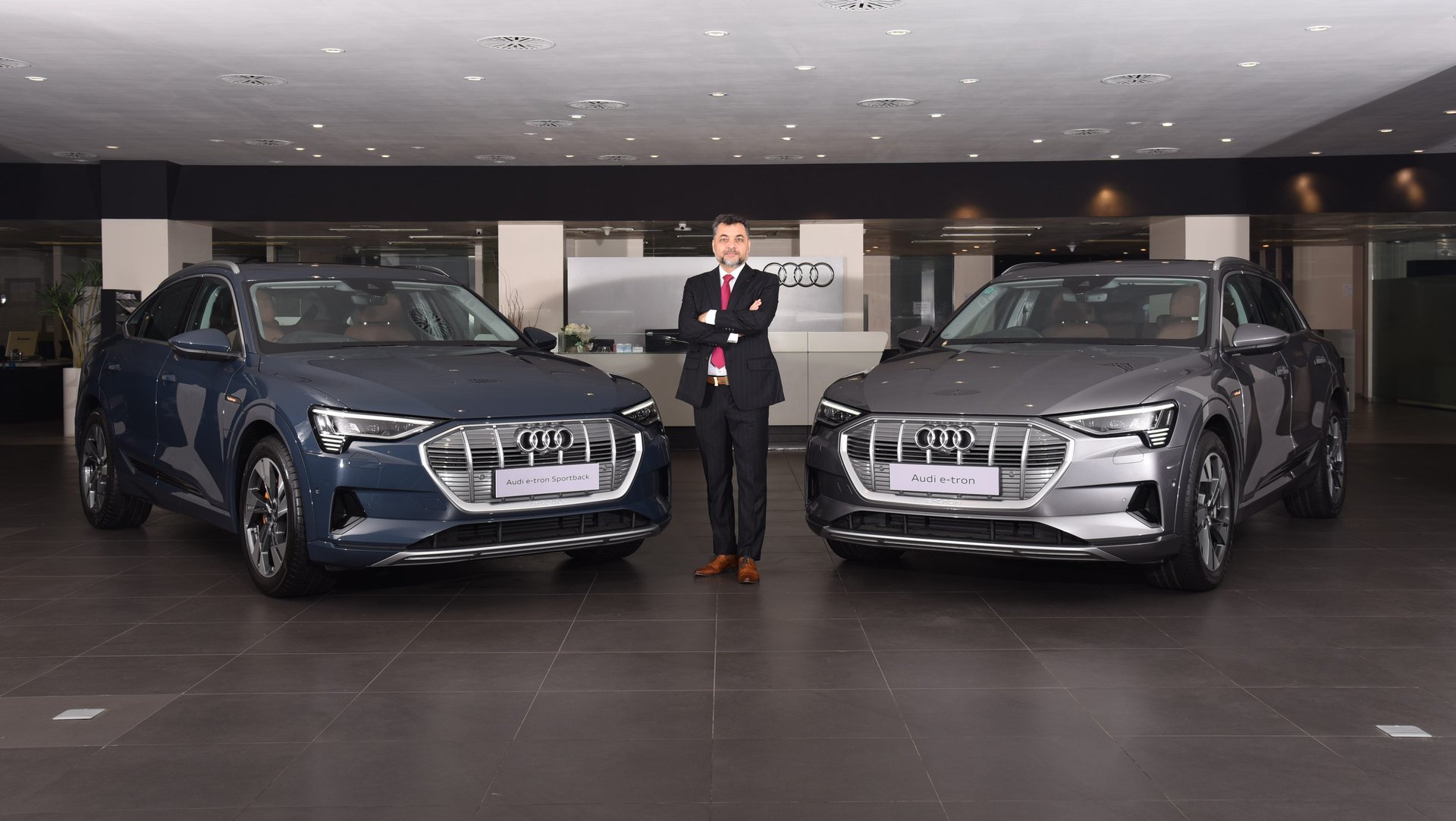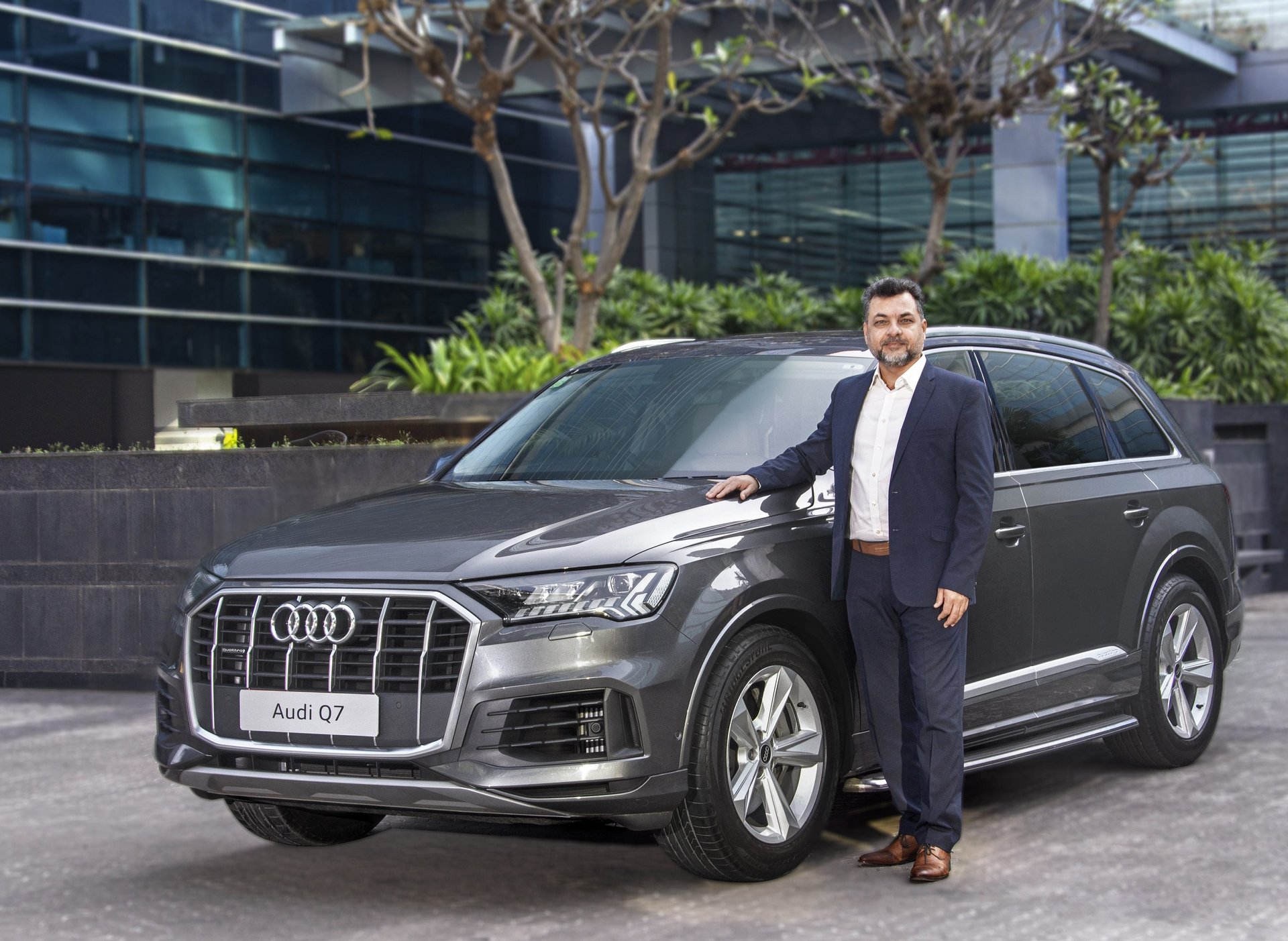Audi expects a strong 2022 in India and, like Tesla, seeks tax cuts
The Indian auto industry, like the global one, has been struggling. But that’s not the case for the country’s luxury car segment. Players like Audi, for instance, even expect better days ahead amid the prevailing gloom.


The Indian auto industry, like the global one, has been struggling. But that’s not the case for the country’s luxury car segment. Players like Audi, for instance, even expect better days ahead amid the prevailing gloom.
The German carmaker foresees double-digit growth in 2022. The confidence stems from its performance last year, with a 101% year-on-year growth in sales, despite India going under a lockdown due to the pandemic.
Sceptical about how the Omicron variant will shape up and about the ongoing shortage of chip supply, Audi India head, Balbir Singh Dhillon, acknowledges that these factors can act as speed-breakers in Audi India’s smooth ride.
In a conversation with Quartz, Dhillon spoke about a range of issues, from electric vehicles (EVs) defining the future to the Narendra Modi government’s tax policy. He, just like, Elon Musk, voices out his concerns around tax cuts to EV importers.
“We request the government to give us a window of 3-5 years of tax sops, which will allow us to create a decent scale and explore localisation,” he said while talking about his company’s seriousness over manufacturing locally.
Edited excerpts from the interview:
How do you view the growth of India’s EV industry?
Demand continues to grow and there is significant momentum as consumer perceptions about viability improve. A convergence of government-driven incentives, initiatives by several brands in India, and overall regulation is helping aid growth.
As a brand, Audi India has received an overwhelming response to the e-tron. We are the brand with the widest EV range on offer in India…with the first batch of cars being sold within days.
We have a strong order bank for 2022 and this reiterates the strong demand for EV’s in India. As a brand, we are targeting 15% of our sales to come from EV’s by 2025.
Is Audi still looking for a tax cut on imported cars in India?
Burdened under high duties, goods and services tax, cess, and registration costs, we request the government to rationalise the entire tax structure, which eventually will lead to higher volumes for the industry. Equally important is a stable policy regime for an uninterrupted business due to long lead times, which is specific to the luxury automotive industry.
Will Audi manufacture an EV in India?

To manufacture electric vehicles in India, we need further investments and to make such investments, we need to achieve a certain threshold of sales volume in India allowing us to make strong projections for the future, which is a prerequisite for any fresh investments.
We request the government to give us a window of 3- 5 years of tax sops, which will allow us to create a decent scale and explore localisation.
How has the pandemic affected demand? Which of your models remain popular?
We did not slow down at Audi India but had a power-packed 2021 with nine model launches, including five electric cars. We witnessed a 101% growth in sales in 2021, with volumes doubling to 3,293 units despite the semi-conductor challenges and the brutal second wave…
Our strong performance was buoyed by better preparedness for the second wave, a revival in customer sentiment, and strong business continuity.
We expect this growth to continue in the months forward. A lot of this will also depend on the situation related to the semi-conductor shortage and the omicron variant
Our products, including the Audi Q8, Audi A4, and Audi A6, along with our e-tron SUV’s and our RS (performance) models continued their strong performance. We kick-started 2022 with the launch of the iconic Audi Q7 on Feb. 3 and are gearing up for another successful year on the back of a strong order bank and new model launches.
What are your expansion plans for India?
The year 2022 will see the launch of volume and niche models.
With a diverse product portfolio, we are confident of a strong sales performance. We will expand the network of Audi Approved: plus (our pre-owned car) facilities across India.
We doubled our presence from seven pre-owned car facilities to 14 in 2021 and our target is to have 20 Audi Approved Plus showrooms in 2022. We will continue to focus on Strategy 2025 focuses on products, digitalisation, network, and human centricity.
How has the global chip shortage affected you?
Across the country, there is no manufacturer that escaped the semi-conductor shortage.
There has definitely been some impact, however, our planning cycles are quite long and hence, we have been able to manage well.
There is definitely more demand than the current supply, which is causing a waiting period for some models. This is a developing situation and it is difficult to predict things for the long term.